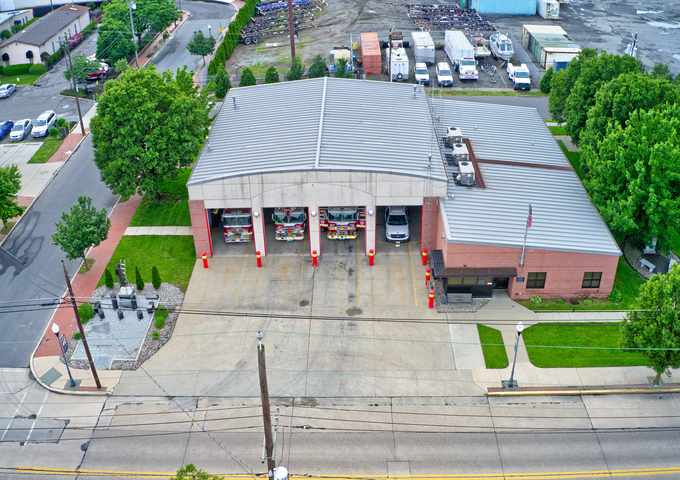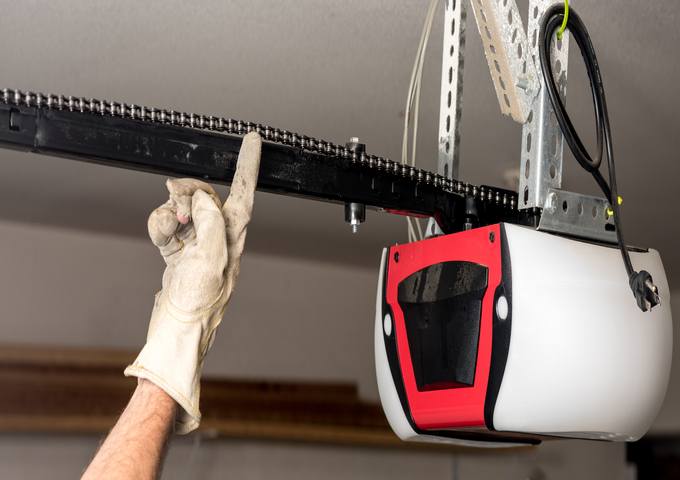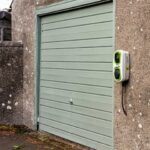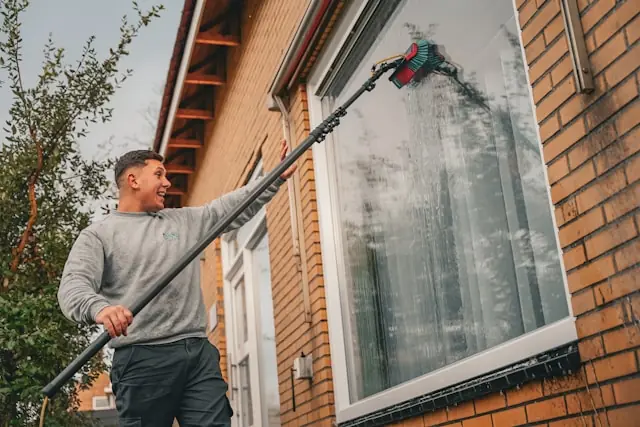If you own an industrial garage or an oversized home garage, choosing the right heavy duty garage door opener is critical. This type of opener is the best garage door opener to handle taller, heavier, and wider doors without failing. A poorly matched opener leads to frequent breakdowns and higher maintenance costs. In contrast, a robust opener ensures smoother operations, better safety, and longer service life.
What Is a Heavy Duty Garage Door Opener?
A powerful opener for heavy garage doors is engineered to lift heavy or tall garage doors reliably. Unlike standard models, these openers come with more powerful motors, enhanced security systems, and rugged hardware.
Key Features
- Motor Strength: Most start at ¾ HP, with some commercial options going up to 2 HP.
- Drive Types: Chain, belt, screw, and jackshaft systems.
- Construction: Reinforced rails and gears, often made of industrial steel.
- Tech Integration: Many include Wi-Fi connectivity, remote access, and smart scheduling.
These systems are ideal for commercial garages, RV garages, and even fire stations.
Why It Matters
Choosing a strong garage door opener ensures:
- Consistent performance even with oversized doors.
- Less wear and tear on tracks and rollers.
- Longer life span due to higher-quality components.
Ideal Use Cases
- Commercial garages
- Barn or industrial buildings
- Residential garages with oversized doors
- Garages in cold or windy climates
Key Specifications to Compare
| Feature | Standard Openers | Heavy Duty Openers |
| Motor Power | ½ HP | ¾ HP to 2 HP |
| Door Size Supported | Up to 8 ft | Up to 14–16 ft |
| Weight Capacity | ~300 lbs | 500+ lbs |
| Drive System Options | Chain, belt | Chain, belt, jackshaft |
| Backup Battery | Optional | Usually included |
Read More: Belt vs Chain Garage Door Opener
Types of Drive Systems
Chain Drive
Strong and affordable. Great for heavy doors, but louder.
Belt Drive
Quiet and reliable. Perfect for homes with bedrooms nearby.
Screw Drive
Fast and durable, but less common.
Jackshaft Drive
Wall-mounted and ideal for high ceilings. Great for space saving.
Best Models on the Market

Let’s look at some top picks. Each heavy duty garage door opener below is tested for performance and durability.
| Brand | Model | Motor Power | Drive Type | Smart Features | Price (USD) |
| LiftMaster | 8500W | DC Motor | Jackshaft | Yes | $550 |
| Genie | 6170H | 1¼ HP | Direct | Yes | $500 |
| Chamberlain | B1381 | 1¼ HP | Belt | Yes | $450 |
| Sommer | Direct Drive | 1 HP | Direct | Yes | $500 |
| Skylink | Atoms ATR-1622 | ¾ HP | Chain | Yes | $320 |
Read More: Wall Mount Garage Door Opener vs Ceiling Mount
Suitable for Commercial Applications
When selecting a commercial garage door opener for a 14 ft door, ensure the unit has:
- A high-horsepower motor
- Extended track systems
- Manual override
- UL325 compliance
LiftMaster 8500W is a popular model for doors up to 14 ft tall due to its side-mount design and smart features.
Installation Considerations
Professional installation is recommended for any large garage door opener. Improper setup can damage both the opener and the door.
What to Expect During Installation:
- Door measurements
- Electrical wiring
- Mounting system
- Drive alignment
- Safety system setup
Installation costs range from $200 to $600, depending on complexity.
Safety Features Checklist
Modern openers for heavy-duty garage doors should include:
- Photo-eye sensors
- Auto-reverse function
- Rolling code technology
- Manual emergency release
These features are essential for safe operation, especially in commercial spaces.
Maintenance Tips
To extend the life of your heavy duty garage door opener:
- Lubricate moving parts every 3 months
- Test auto-reverse monthly
- Clean safety sensors
- Replace backup batteries every 2 years
Energy Efficiency
Many modern garage door openers now use DC motors, which are more energy-efficient and support smoother starts and stops. Some models draw less than 1 watt in standby mode.
Real-World Case Study
Case: An auto service center in Denver had constant issues with their 12 ft overhead doors.
Solution: They upgraded to two Genie 6170H heavy duty garage door openers.
Results:
- 40% faster open-close cycles
- No mechanical failures in 12 months
- Reduced repair costs by 60%
Troubleshooting Common Issues
| Problem | Likely Cause | Fix |
| Door won’t close completely | Sensor misalignment | Realign sensors |
| Opener makes loud noise | Loose chain or belt | Tighten the drive |
| Door reverses before touching | Sensitivity too high | Adjust the settings |
| Remote not working | Dead battery or interference | Replace battery / check frequency |
Cost Breakdown
| Item | Cost Estimate (USD) |
| Opener unit | $300 – $700 |
| Installation | $200 – $600 |
| Electrical work (if needed) | $100 – $300 |
| Annual maintenance | $50 – $150 |
Warranty & Support
Reputable brands offer warranties ranging from 5 years to lifetime coverage for motors and parts. Always register your heavy duty garage door opener online and keep your proof of purchase.
5 FAQs
-
How long does a heavy duty opener last?With proper maintenance, expect 15–20 years of service.
-
Can I install it myself?
Not recommended unless you’re experienced with garage door mechanics.
-
Does it work with my smart home system?
Most modern models support Alexa, Google Home, or proprietary apps.
-
What’s the quietest option?
Belt or direct drive openers are the quietest, even among heavy duty garage door opener types.
-
Can I retrofit my current system?
Yes, but ensure compatibility with your existing tracks and sensors.
Conclusion
A heavy duty garage door opener isn’t just about brute strength—it’s about safety, reliability, and efficiency. Whether you’re managing a commercial facility or have a custom home garage, investing in a quality opener pays off in durability, low maintenance, and peace of mind.














Leave a comment